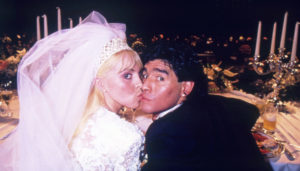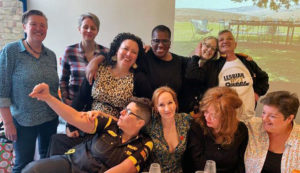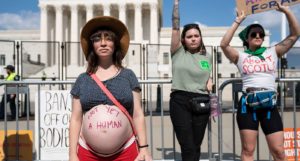I live in Crouch End, a part of North London otherwise known as Nappy Valley. Regularly appearing on lists of the best places in the capital to raise a family, the area is full of the type of coffee shops that attract parents of babies and toddlers. If some areas of London are notable for the background noise of police cars and screaming drunks, Crouch End hums with the sound of people speaking to one-year-olds as though they were adults: “Barnaby, would you like a soya milk babyccino?”, “Clementine, I would rather you didn’t throw that saltshaker at me. It hurt. Is that OK with you?”
Cultured, middle-class parents increasingly see their offspring as projects that require vast amounts of time, attention and money. These parents, led by the “child-centred approach”, have little or no time for anything that benefits wider society; instead, their own family unit becomes their universe. And despite there being, in my opinion, no unselfish reason for having children, those of us who choose to remain child-free are routinely called selfish.
In Crouch End, I experience more stigma for being child-free by choice than I do for being a lesbian. It didn’t used to be like this.
Throughout the Eighties, I knew several lesbians who lost custody of their children from previous heterosexual relationships due to the prejudice of Family Court Judges. It was deemed “unnatural” for lesbians to raise children. It is very rare, among the liberal chattering classes, to hear this nonsense today. I rarely sense any uncomfortable vibes from middle-class heterosexuals when they realise I am a lesbian. In fact, for this demographic, I am quite useful at a dinner party: I improve their equality and diversity index. But the conversation always turns to children. Having established that I am in a long-term, happy relationship, the next question is inevitably: “Do you have children?”
I used to say “no” and brace myself for the sympathetic nod, but a few years ago, I started to give an expansive explanation, whether they wanted it or not. And trust me, they really didn’t!
Seeing friends raise children over the years has taught me about the massive curtailment of freedom that comes with it, not just to socialise, but to work, do political activism and sleep. Having children costs a fortune: money that I think can be better spent supporting women (and their kids) to leave violent men. I would far rather my time and disposable income went towards helping children living in poverty than having my own.
But when I say all this to North London liberals, the disapproval is palpable. It is as if I am saying I hate children — including, more to the point, their children. Obviously, that is not true. I am told I don’t know what I am missing, which is also untrue: I know exactly what I’m missing and I want none of it.
The first time I publicly questioned the sanctity and sanity of having children, it was obvious I had broken the golden rule: never question what one friend called “the sunshine miracle of motherhood”. The emails started arriving — dripping in vitriol — including one from an infertile woman who likened me to Hitler for “wanting to phase out the human race”.
Having children, though many parents seem to forget it, is a choice. But women who choose to not have children are often warned that they will regret their decision later in life, yet we rarely talk about the possibility that the opposite might also be true — that women who have children might wish they had not.
Take the experience of Anna (whose name I’ve changed), a woman in her thirties who contacted me on social media. She had seen the massive pile-on I experienced when I challenged a group of women who were pontificating about how selfish child-free women were. One had said to me: “Leave us to do the hard work of raising the next generation, why don’t you?” Anna told me she had regretted becoming a mother but felt that she was unable to speak about it to anyone.
“I told my doctor I regretted having children and that I was deeply depressed,” wrote Anna. “She sent me to a psychiatrist. I told her that I had felt totally railroaded into having babies, not by an abusive partner or religious parents but by society that values me primarily as a breeder.”
As a campaigner against male violence, and as someone who grew up in a working-class community, I am well aware that many women do not actively choose to have children. For many mothers, particularly middle-class ones, it is a lifestyle choice; for women in violent or controlling relationships, it is often imposed upon them. The same goes for those raised in conservative religious communities in which women have a duty to produce children; anyone who does not is seen as having failed and can be punished and ostracised.
Still, anyone who admits to regretting motherhood is seen as a sociopathic monster — even though it’s not that rare to regret having children. Last year, a YouGov poll found that 1 in 12 parents did. Society can be unkind to those women who choose not to reproduce, but it can also be unkind to those that do. Working class mothers, in particular those raising children alone, often find that affordable childcare is non-existent; women who can’t afford to not work, as well as those that actively wish to, find that their lives are made near-impossible after they have children. Witnessing how these difficulties affect mothers certainly helped me decide that motherhood was not for me.
Liberal feminism seems reluctant to address the fact that women like me are frowned upon. There is a common assumption that those of us who actively choose not to reproduce are selfish, rootless and have no concern for future generations. It is not just conservatives who suggest this, but also liberals and Leftists. They feign concern about “falling birth rates” being a “threat to the future of humanity”. The hypocrisy is staggering. Nobody, surely, decides to have children in order to produce a future workforce; no one actually breeds because they are worried about who will care for elderly people in the future.
Still, according to some, I should not only face stigma and disapproval for being child-free, but also be financially penalised. Demographer Paul Morland argued in The Times last week that, in order to address the “problem” of the falling birth rate, those without offspring should pay additional tax. “This may seem unfair on those who can’t or won’t have children,” he wrote, “but it recognises that we all rely on there being a next generation and that everyone should contribute to the cost of creating that generation. Use the funds to fix the UK’s broken, expensive early-years care system.”
To accuse child-free people of having less stake in the future is absurd. I am a feminist and what is feminism if not an attempt to change the world for future generations? As a campaigner against all forms of violence against women and girls, my work affects more children than you can cram into a four-bedroom Georgian terrace. When asked what will happen when I die, with no kids to carry on the family name, I always say that I am proud that my legacy will be making the world a slightly better place. Meanwhile, I have witnessed friends give up on trying to change the world in favour of having children, their focus shifting onto their own, ever-shrinking world.
When I came out in the Seventies, lesbians fought back against stigma. I was informed on many an occasion by certain ignorant heterosexuals that it was a shame “you can’t have kids”. I would respond by informing them that lesbians did, in fact, have wombs. Over the years, we campaigned to change the laws that prevented lesbians from adopting and fostering, and challenged the family courts when children were removed from lesbian mothers at the behest of embittered ex-husbands. Today, it is commonplace for lesbian couples to have and raise children together, and I am delighted that they have legal protection as parents. But it’s time, now, to fight back against the stigma directed at those women who choose not to procreate. After all, the expectation that “having a family” is something we all want to do is rooted in sexism. For the record, I do have a family, it just happens not to have any kids in it.
Disclaimer
Some of the posts we share are controversial and we do not necessarily agree with them in the whole extend. Sometimes we agree with the content or part of it but we do not agree with the narration or language. Nevertheless we find them somehow interesting, valuable and/or informative or we share them, because we strongly believe in freedom of speech, free press and journalism. We strongly encourage you to have a critical approach to all the content, do your own research and analysis to build your own opinion.
We would be glad to have your feedback.
Source: UnHerd Read the original article here: https://unherd.com





